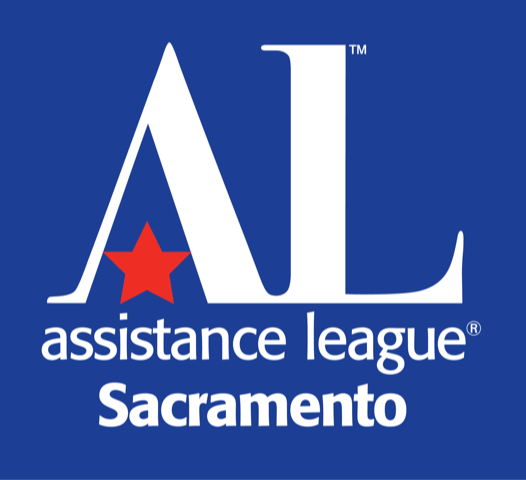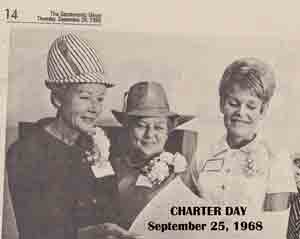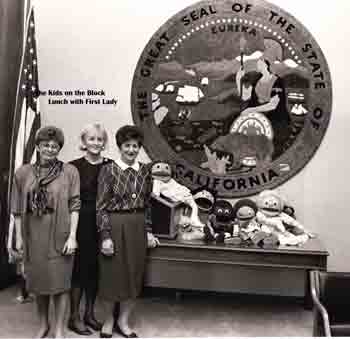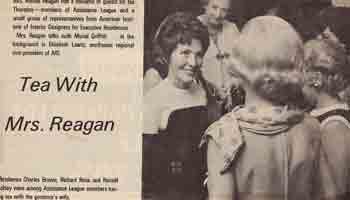- In 1966, 34 Sacramento women, embracing this powerful vision, created an official guild and started the journey for Assistance League of Sacramento
- In 1968, Assistance League of Sacramento, became the 45th chapter of National Assistance League with 52 members
- The first chapter program served seniors in two convalescent hospitals who were unable to shop for themselves
- The chapter has expanded to support eight programs in the Greater Sacramento area
- After eight years of fundraisers, a small thrift shop was opened in 1987
- In 2014, the chapter purchased its own building to increase revenues to grow programs supporting the community
- Assistance League Center celebrated its grand opening in 2015, where our programs and resale shop continue to thrive
- This 100% volunteer organization has touched hundreds of thousands of lives in the Greater Sacramento area
When caring and commitment are put into action,
the results are astonishing
Chapter History
National Assistance League History
- Assistance League was the first nonprofit, nonpolitical, nonsectarian organization founded in the West to recognize the potential of volunteers in helping those less fortunate to a better, more meaningful life
- Our founder, Ann Banning, was a member of a small group of prominent Los Angeles women who did local charitable work beginning in the mid 1890s, calling it Assistance League
- In April 1906, the women of Assistance League responded to the San Francisco earthquake and fire by collecting money and sewing clothes
- In 1919, Anne Banning and a group of twelve friends, including Ada Edwards Laughlin, recognized as co-founder, formed Assistance League of Southern California to provide food and clothing for local families severely impacted by World War I
- A bungalow in Hollywood was purchased as the community house in 1923. The first services were Good Samaritan, Day Nursery, Girls’ Club and Theatre for Children
- Film Location Bureau, Attic Tearoom, Women’s Exchange and Trousseau Shop provided the revenue. Originating between 1920 and 1930, these were pioneer services emulated by both public and private agencies
- Anne Banning and Ada Laughlin organized National Assistance League® in 1935 to promote the growth of effective volunteerism through leadership training and education
- Anne Banning felt it was fine to serve youth, but important for youth to serve. Informal girl groups began in the 1930s and were consolidated in 1944
- Shirley Temple was a member of the Beverly Thrifties who supported the thrift shop. In 1959, guidelines were prepared for auxiliaries of members under the age of twenty-one and in 1961, all teenage auxiliaries were given the name Assisteens®
- Through the gift of service to their communities, Assistance League chapters continue to fulfill Anne Banning’s philosophy of volunteer service: “To act as a friend at any and all times to men, women and children in need of care, guidance and assistance, spiritually, materially and physically.”
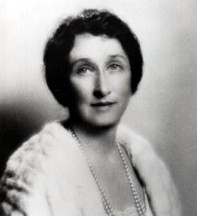
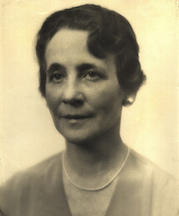
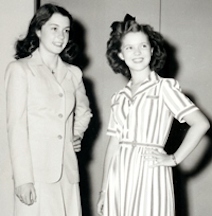
Annual Member Statistics
- Over 275 current member volunteers
- Over 27,000 individuals served in the Greater Sacramento area annually
- Over 47,000 volunteer service hours donated by members and community volunteers
- Estimated value of volunteer service: *$1,584,489
*Source: U.S. Bureau of Labor Statistics
Annual Program Statistics
- Provided new clothes, shoes, school supplies, literacy services,
and hygiene kits to 14,731 elementary school children; - Served 3,913 foster youth and sex trafficked victims with
housing starter kits, hygiene/cleaning products, and clothing; - Provided one-time goods, services, and housing starter kits to
3000 homeless individuals and middle school students; - Provided 33 scholarships to community college students;
- Packaged and delivered 3,000 teddy bears to hospitals, law
enforcement, and emergency facilities for traumatized
children and seniors with memory impairment; - Clothed 82 women entering the workplace upon completion of a
job training program; - Supplied yarn and fabric to 6 senior facilities where residents
produced scarves, blankets, and hats for 2,030 children,
homeless individuals, and teens in crisis.
